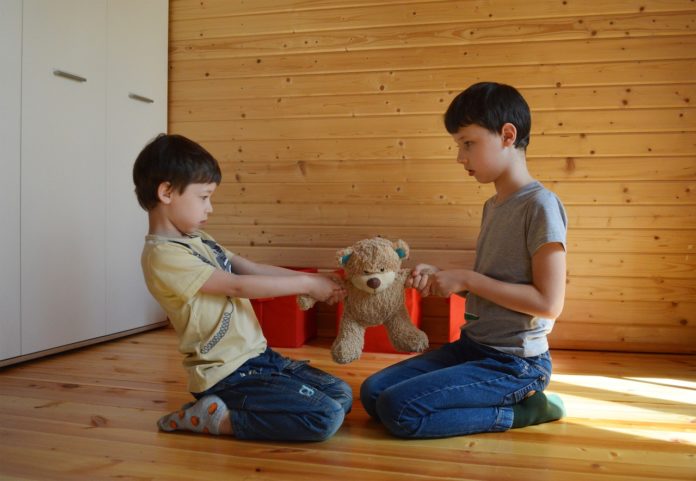Talking about sibling jealousy, Cierra Fisher, LPCA, Ed.S, Licensed Therapist, says, “Jealousy among siblings, or sibling rivalry as many call it, is normal and healthy among siblings. As long as parents and caregivers respond in a way that doesn’t target or favor one sibling over the other and supports cooperation, and sibling teamwork, it typically won’t turn unhealthy, and will reduce hardship and stress within the family and rivalry. However, if a parent or caregiver does have a “favorite”, tends to be more difficult on one child more than the other, then it can create issues that can even last into adulthood. We don’t only see these issues affect sibling relationships in adulthood but relationships individual’s have with their parents because of the clear connections between the hardship created by the rivalry and the parent enabling and favoring.”
Some experts say that sibling conflicts arise when children fight over the love of their parents. Others say that the child’s goal is parental recognition or attention.
Following are the ways that children demonstrate sibling rivalry:
- Calling each other names
- Telling on each other
- Verbal combat, but not friendly
- Hitting each other
- Destroying or hiding each other’s things.
Why Do Siblings Fight?
How your child’s needs and personality develop over time can have a huge impact on their relationships with others. In many cases, this can escalate their conflict.
Many factors can contribute to sibling rivalry.
Age-related factors:
- Preschoolers are not fully in control of the social skills they need to be assertive without being aggressive. They may fight to protect their toys and other possessions.
- School-age children are concerned with justice and injustice. They may not be happy that the younger sibling seems to be getting preferential treatment.
- Teenagers value independence. They may be annoyed that they are asked to take care of their younger sibling.
- The age difference between siblings: The closer your children are in age, the more likely they are to get along.
Other factors include:
- Individual temperament. Your child’s mood, personality, and adaptability can greatly affect how well they get along. For example, if one sibling is laid back and the other is outgoing, they could easily get disheveled.
- Special needs. If your child has special needs or chronic illnesses, he or she needs more attention and time. This can create competition between your children.
- Your own conflict resolution skills and those of your partner: Many studies indicate a strong relationship between sibling jealousy and parental disharmony.
- Your parenting style: Dominant and apathetic parents have been shown to stimulate sibling rivalry more than parents who act as mediators and guide their children to resolve their differences.
- Culture. When certain cultural practices appear to ignore a gender, members of that gender may feel left out and express this as resentment toward their seemingly privileged siblings.
Additional parenting behaviors that can exacerbate sibling rivalry include:
- Openly favoring one child over another
- Comparing your children
- Putting your kids in competition with each other
It can be difficult to know how to get children to get along. Fortunately, experts can point to proven interventions.
How to Deal With it?
“The first time your children meet is very crucial to how their relationship with each other and with you will play out. So when your older child comes to the hospital to meet the baby, making sure that the baby is in the cart or cradle and your arms are open to your older child is a great way to first introduce the new sibling. This way the older sibling can touch the baby and make a connection while you are available to hold, hug or kiss them,” Cathy Domoney, a world-renowned Parenting Expert, Author, Mentor, and CEO of Parenting Evolution, said.
She added, “Another thing you can do is bring gifts to the home when the baby arrives and tell the older siblings that they are from the baby. You don’t need to buy anything extravagant, just a little something to express the baby’s gratitude for their older siblings. It will create a sense of responsibility and love in the older siblings for the baby.”
“One particular instance I remember is when I was feeding the baby and my son got angry because of jealousy. I finished feeding the baby, gave them to my husband, and asked him to not disturb us for an hour. And then I called my son in the room, we read books, played together and hugged. It was a sort of reconnection to let my son know that I love him very much and the baby is only an extension to it,” she added.
Cathy concluded by saying, “Jealousy is generally born out of the disconnect and the feeling of lacking. Remind your child that they don’t need to compare themselves to anyone else because they have their own set of skills, and characteristics, they are more than enough, and your love for them now that they are older siblings has grown even greater.”
Taking the above-mentioned steps will dissolve the jealousy.


